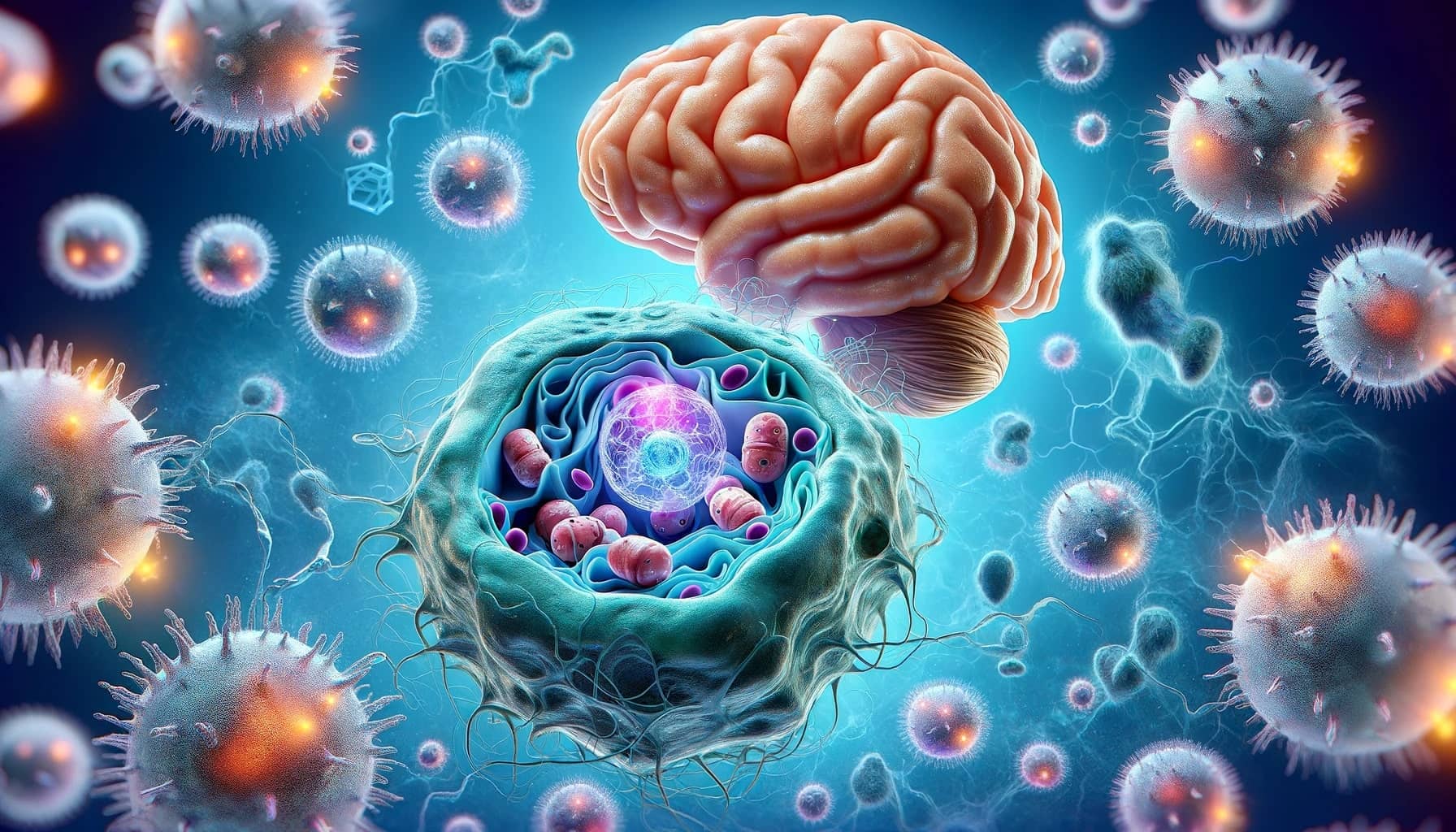
Autophagy and Aging: The Power of Cell Cleaning, Brain Renewal, and Natural Defenders
Cell Cleaning: A Key to Staying Young?
Ever wondered how our bodies stay neat and tidy inside as we get older? There’s a special process called “cell cleaning” or autophagy. It’s like having tiny workers in our cells that take out the trash and fix broken parts. This keeps our cells healthy, especially when they’re stressed.
Autophagy does more than just clean up. It’s really important for many health problems, like diabetes, brain diseases, cancers, and infections. Keeping autophagy strong might help treat these issues. It’s super important for brain diseases like Parkinson’s and Alzheimer’s because it gets rid of bad proteins involved in these illnesses.
Scientists are excited about how autophagy is linked to aging. Studies show that boosting this process helps creatures, from tiny yeast to mice, live longer. Some kinds of autophagy focus on getting rid of cell parts that don’t work well, helping us stay young. Also, eating less can increase autophagy, suggesting a diet could slow down aging.
But, using autophagy alone to fight aging is tricky. We need to be careful about how we boost it, to avoid problems. Targeting specific autophagy paths might help more with aging and brain diseases.
Brain Renewal: Keeping Our Brains Young?
As we age, our risk for Alzheimer’s disease goes up. The hippocampus, a key part of the brain, is affected a lot. In the hippocampus, special cells keep adding new brain cells. But as we get older, this process slows down, and it’s worse in Alzheimer’s. Things like changes in the cell’s surroundings and fewer growth factors for these cells play a role.
There’s hope, though. Studies show we can revive the hippocampus and fight brain aging. Things like exercise, certain foods, and medicines could help. Exercise, for example, has been found to boost brain renewal and brain health factors, improving thinking skills in Alzheimer’s mice.
Natural Defenders: Fighting Age-Related Diseases
Oxidative stress is a big player in aging and diseases. Oxidative stress happens when there are too many reactive oxygen species (ROS) – kind of like waste products from using oxygen in our cells. It’s a natural part of cell life but can cause problems as we age. Long-lived animals handle oxidative stress better, which could be a clue for healthy aging.
As we get older, our natural defenses against oxidative stress get weaker. This is especially bad for organs like the heart and brain. Eating foods with antioxidants or taking supplements could help. Antioxidants are like bodyguards against harmful molecules, helping us stay healthier and live longer.
Two antioxidants, resveratrol (found in things like grapes) and curcumin (found in turmeric), look promising. They seem to help with memory and heart health. But we need more research to be sure about how well they work.
In the end, cell cleaning, brain renewal, and natural defenders are exciting areas in understanding aging. While we’re still figuring out how these processes affect getting older, the research gives us hope for ways to age better and healthier. By studying these parts of our biology, we’re learning more about the aging puzzle and how to influence it for the better.
